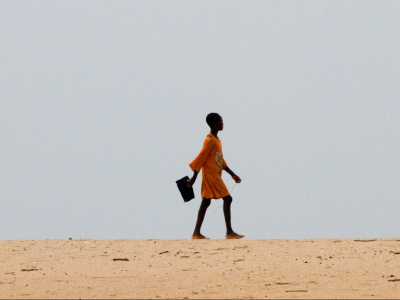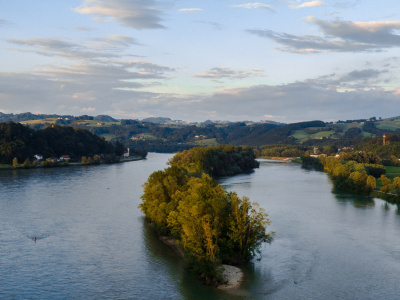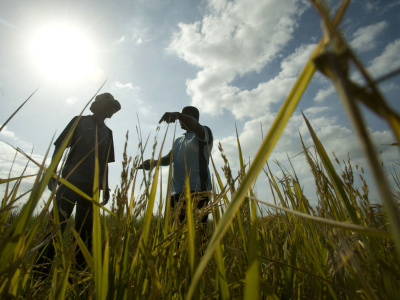
Cascading climate risks: Towards adaptive and resilient European societies – CASCADES project (2019-2023)
The four-year CASCADES project analysed the cross-border impacts of climate change for Europe, identifying critical risks and exploring potential solutions.
About the project
The effects of climate change – ranging from extreme weather conditions to food and water shortages – do not only physically cross national borders, but can also impact global processes such as trade, business, conflict and migration.
For instance, in 2010, climate impacts in Russia and Pakistan resulted in a shortfall of cereals to international markets. Cereal prices spiked as a result of drought-related harvest failures and a subsequent Russian export ban. This led to higher food prices globally, including in Europe. In Egypt, the higher cost of food became one of the additional triggers for riots, which led to a change of government.
The impact of climate change within Europe has been relatively well-studied, but not much is known about how climate-related events occurring elsewhere might affect the continent. It is crucial that European policymakers are aware of the full spectrum of cross-border and cascading climate risks, and that they take them into account in their future policies.

This is where the interdisciplinary ‘CASCADES’ project comes in. The four-year project, funded through the European Commission’s Horizon 2020 programme, has analysed the cross-border impacts of climate change for Europe, identifying critical risks and exploring potential solutions.
The CASCADES project is coordinated by the Potsdam Institute for Climate Impact Research (PIK) and involves eleven other organisations and universities across Europe, including ECDPM:

ECDPM’s contributions focused on the development, security and foreign policy implications of climate change outside of Europe. We formulated recommendations on how European policies can address these risks coherently, analysed how European climate finance is affected by climate change, and advised on how these institutions can build resilience to climate risks.
An important part of our work has taken place in regions that are key to European foreign policy, such as the Western Sahel (with a focus on Burkina Faso) and North Africa (zooming in on Tunisia).
Visit the official CASCADES project websiteFor questions related to ECDPM's involvement in the project, please contact Hanne Knaepen. For communications and media enquiries, please get in touch with Isabell Wutz.


ECDPM work for the project
Other publications ECDPM contributed to
Lessons from COVID-19 for managing transboundary climate risks and building resilience
Andrew K.Ringsmuth, Ilona M., Otto, Bartvan den Hurk, Glada Lahn, Christopher P.O. Reyer, Timothy R. Carter, Piotr Magnuszewski, Irene Monasterolo, Jeroen C.J.H. Aerts, Magnus Benzie, Emanuele Campiglio, Stefan Fronzek, Franziska Gaupp, Lukasz Jarzabek, Richard J.T. Klein, Hanne Knaepen, Reinhard Mechler, Jaroslav Mysiak, Jana Sillmann, Dana Stuparu, ChrisWestu, journal article published in Climate Risk Management
Europe’s cross-border trade, human security and financial connections: A climate risk perspective
Christopher D. West, Emilie Stokeld, Emanuele Campiglio, Simon Croft, Adrien Detges, Anja Duranovic, Adrian von Jagow, Łukasz Jarząbek, Christian König, Hanne Knaepen, Piotr Magnuszewski, Irene Monasterolo and Christopher P.O. Reyer, journal article published in Climate Risk Management
Cascading climate impacts: a new factor in European policy-making
Mikael Hildén, Glada Lahn, Timothy R. Carter, Richard J. T. Klein, Ilona M. Otto, Benjamin Pohl, Christopher P. O. Reyer and Fabien Tondel, CASCADES brief, January 2020
Events
Videos
Challenges to system-wide resilience to cascading and cross-border climate impacts
Footage credits: RECEIPT project and Arctik - Communication for Sustainability






















